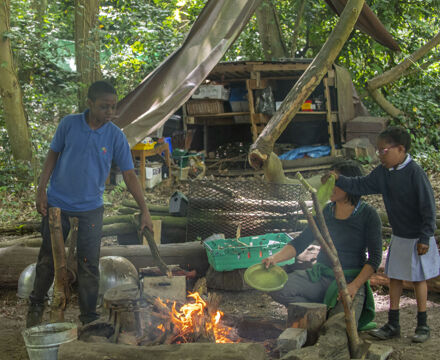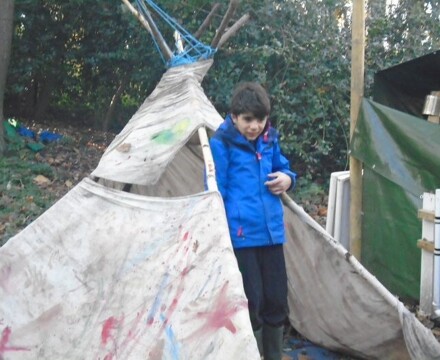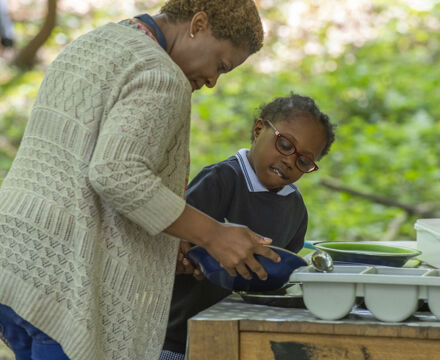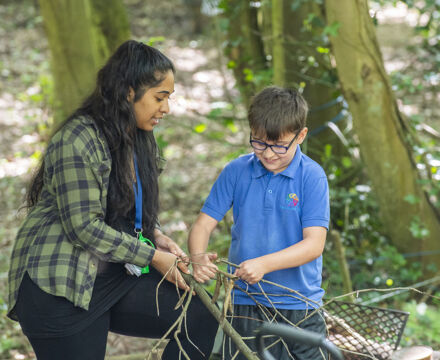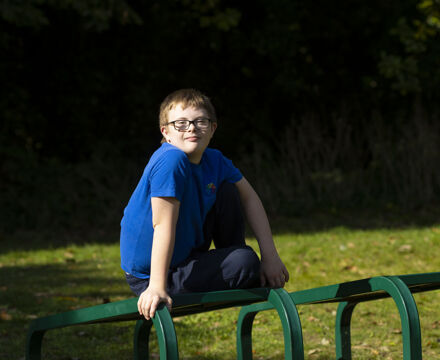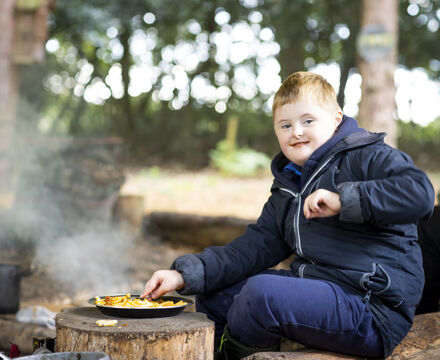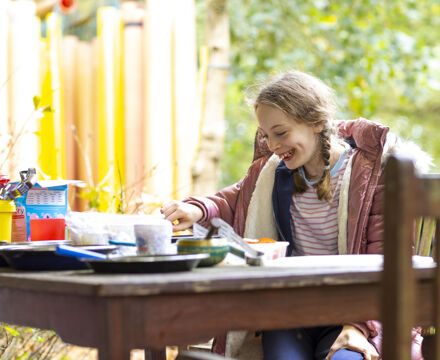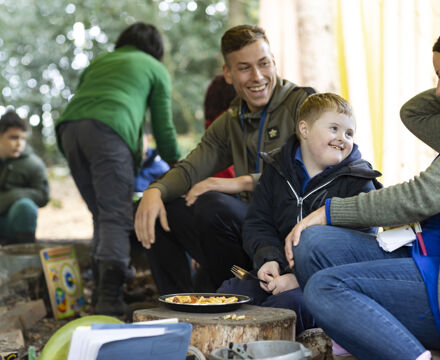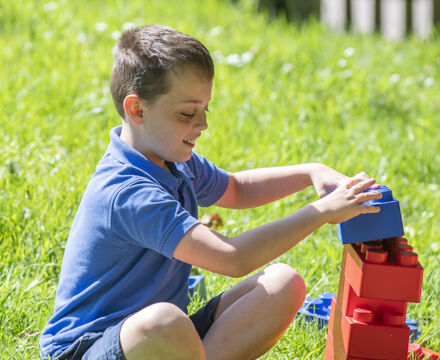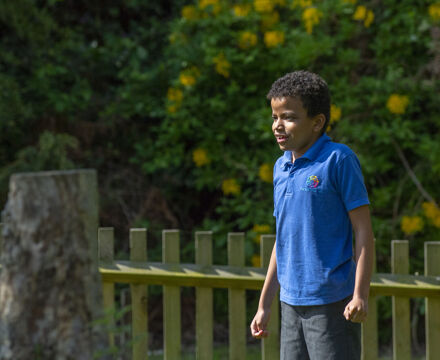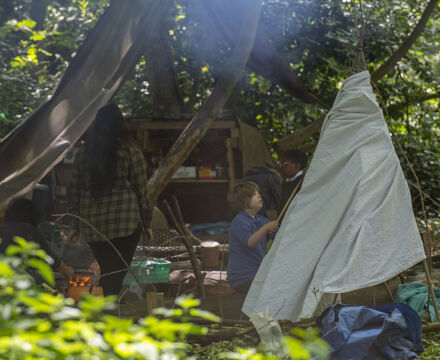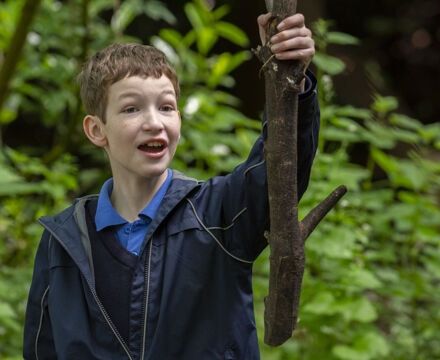- Home
- Teaching & Learning
- Outdoor Learning & Forest School
Outdoor Learning & Forest School
Outdoor Learning
Here at Parkwood Hall, we are lucky to have a large number of open areas and woodlands for our students to explore and learn within. We have several outdoor play areas attached to classrooms, tennis courts, large playing field as well as two forest school areas.
The outdoor areas provide students with one of the best possible environments in which to learn. Any adult who has watched students playing in a well-planned and well-resourced outdoor area with involved adults will have observed the joy and excitement they experience as they learn new skills and make fresh discoveries.
By encouraging learning outside it has demonstrated many benefits including:
- Encouraging students to relive their experiences through their most natural channel – movement. Movement is one of the four vehicles through which students can learn. The others are play, talk and sensory experiences.
- It provides access to space to nurture mind-body growth.
- It enhances the development of motor skills (gross and fine); develops coordination, balance and body awareness. (Bratton, et al., n.d.)
Each outdoor learning session aims to allow students to access the curriculum in a different environment to the classroom, with each session carefully planned to meet the individual social, emotional, communication and interaction needs of the students who attend.
What is Forest School?
Forest School is an innovative outdoor learning programme allowing children the freedom to explore and experience the natural world through practical involvement. It also helps install confidence and self-esteem through an achievable hands-on learning experience.
The Forest School Association (2012) developed a set of six principles which underpinned Forest School activities. The six principles are:
- Forest School is a long-term process with frequent and regular sessions in a local natural space, not a one-off visit. Planning, adaption, observations and reviewing are integral elements.
- Forest School takes place in a woodland or natural wooded environment to support the development of a relationship between the learner and the natural world.
- Forest School aims to promote the holistic development of all those involved, fostering resilient, confident, independent and creative learners.
- Forest School offers learners the opportunity to take supported risks appropriate to the environment and themselves.
- Forest School is run by qualified Forest School Practitioners who continuously develop their professional practice.
- Forest School uses a range of learner centred processes to create a community for development and learning.
You can find more information on the Forest School Association's website: www.forestschoolassociation.org
Forest School at Parkwood Hall
With 78 acres to explore, the grounds at Parkwood Hall offers the perfect setting for Forest School and we currently have two Forest School areas on our school site.
Our students require a structured and differentiated curriculum and, for Forest School to be accesible to all, Forest School's six main principlies require adaptation to meet students' needs at different levels. With this in mind, we have invested in training for a team of our own staff to continually develop this provision to make it accessible for as many students as possible. Our trained staff work together to develop areas for the students to explore, cook oudoors and learn together.
During Forest School sessions, students will cook a meal of their choosing on an open fire and engage in a range of child-led activities. The sessions are adaptable to meet the varied needs of our students, ensuring inclusivity.
